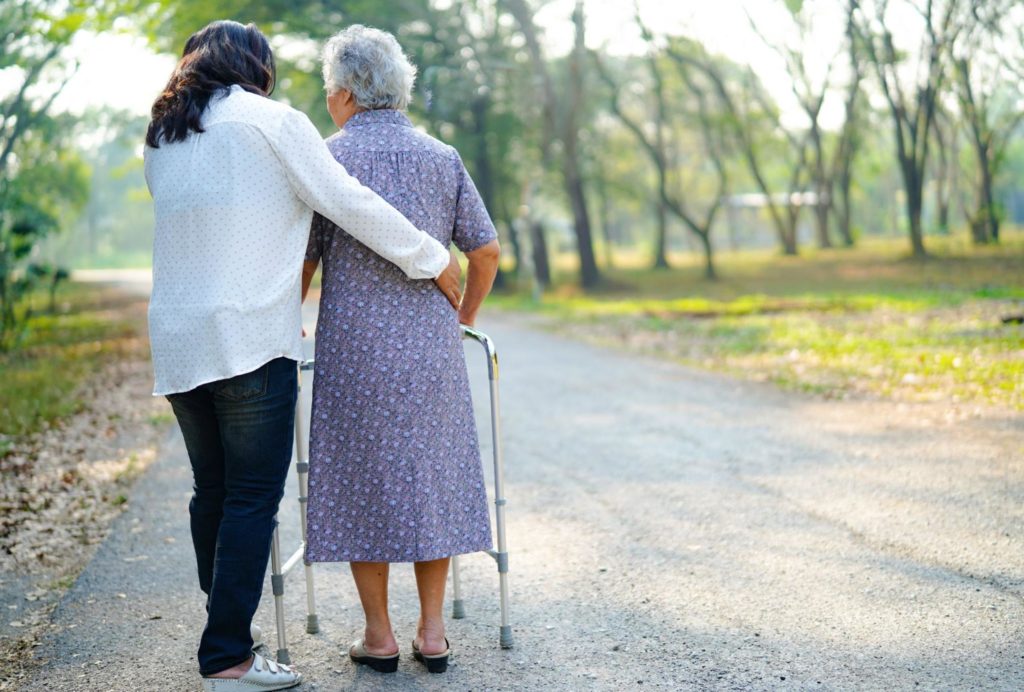The Emotional Effects of Dealing with Terminal Illness
Given their consequences, terminal illnesses usually create emotional repercussions. So, their proper care involves identifying a patient’s emotional responses and determining how to help them process these emotions. Both palliative care and hospice care respond to such concerns, so seek a local provider who can assist you and your loved one through your difficult times.
Tysons Woods provides elder care services and support to McLean, VA, residents. We offer all-inclusive senior care, end-of-life care, and medical care at our facilities. We’ve built communities on principles of support, safety, and empathy. Furthermore, our team of professionals contributes to each patient’s unique care plan. Contact us today at (703) 846-0395.
What are the Emotional Effects of Terminal Illnesses?
Terminal illnesses—including dementia, cancer, and stroke—take heavy emotional tolls that confound how individuals deal with the illness. Those suffering from terminal conditions often experience depression, anxiety, sadness, and a slew of other feelings. These emotions alone are challenging; coupled with a terminal illness, they become debilitating.
Additionally, terminal illness patients may experience loss of sleep and nightmares due to their distress. Loneliness, which can also result in reclusive behavior, is also common. Finally, some individuals experience irritability, feelings of hopelessness, and loss of interest in previously enjoyed activities.
Individuals approaching the end of their life often reflect on their life’s worth. Many experience feelings of sadness and anger, which in turn puts pressure on their relationships. Some people may feel a sense of regret or guilt about their past.
Ways to Deal with the Emotional Effects of Terminal Illness:
- Palliative care: Such care involves treatment for a terminal illness and its consequences, including emotional side effects. Palliative care’s core goal aims to improve comfort and quality of life.
An assisted living facility can deliver palliative care by providing personalized full-time support for daily acts of living. These activities include everyday routines that contribute to a healthy lifestyle, such as personal care and dietary practices. Additionally, the facility’s medical professionals can administer medical care on location.
Residents may also receive private care in the comfort of their own space while enjoying access to a community of residents. Within the community, residents support one another. They can relieve their negative emotions of dealing with a terminal illness.
- Hospice Care: If a doctor determines a patient has 6 months or less to live, they turn to hospice care. Treatment for the patient’s terminal illness may no longer be an option, or the patient may no longer wish to receive treatment. In either case, hospice support provides for the patient’s comfort.
The physical aspects of hospice care services include pain and symptom management through medication and treatment. Emotional and spiritual support is also incorporated as well as speech or art therapy. Hospice care encompasses support for the mind, body, and spirit to help patients process the ultimate consequence of terminal illness.Oftentimes, people become overwhelmed with negative emotions towards the end of their lives because of fear and uncertainty about death. However, Tysons Woods staff encourages residents to identify the value of their lives as well as their legacies. Working through emotions facilitates a peaceful spiritual transition.
The Preferred Palliative & Hospice Care Provider in McLean, VA

Seek Tysons Woods for a trusted palliative and hospice care provider in McLean, VA. We are committed to offering the best quality of life possible for each resident. We foster dignity, respect, and friendliness as we instill personal relationships with our elders. Contact us at (703) 846-0395 to schedule a visit.



